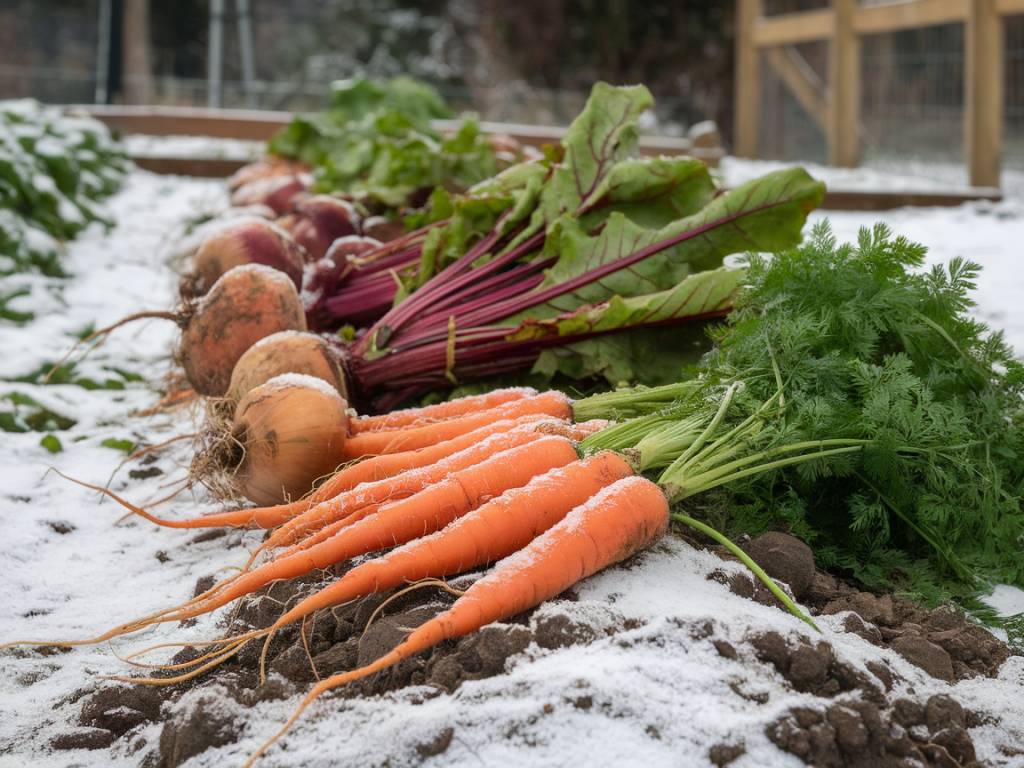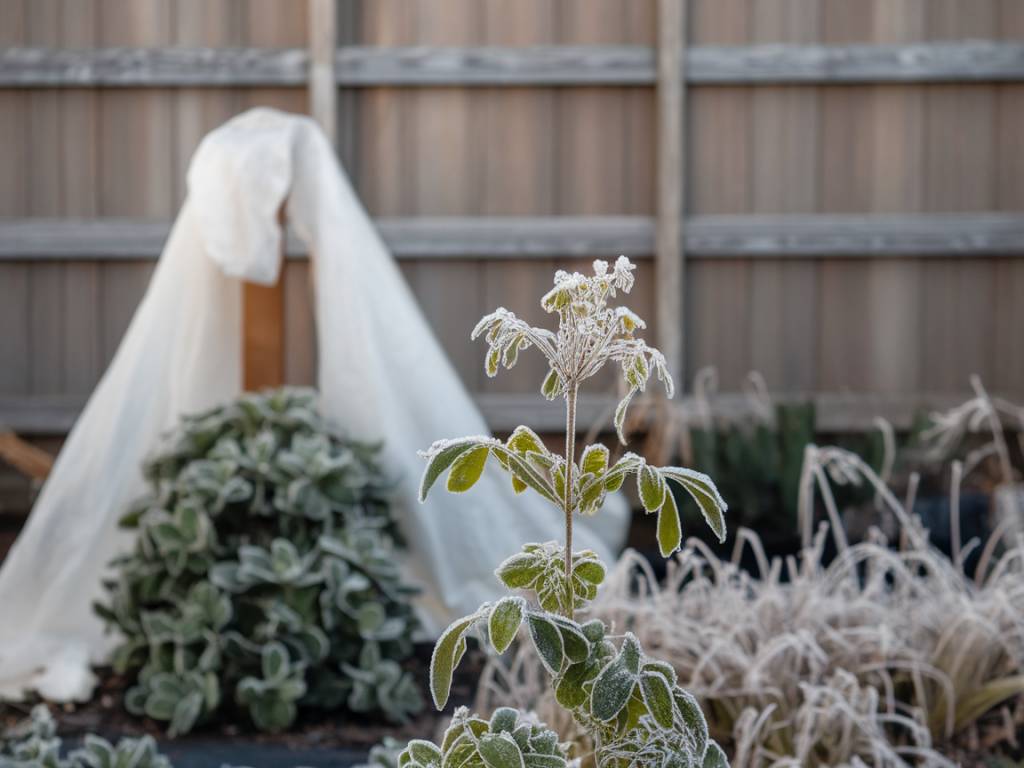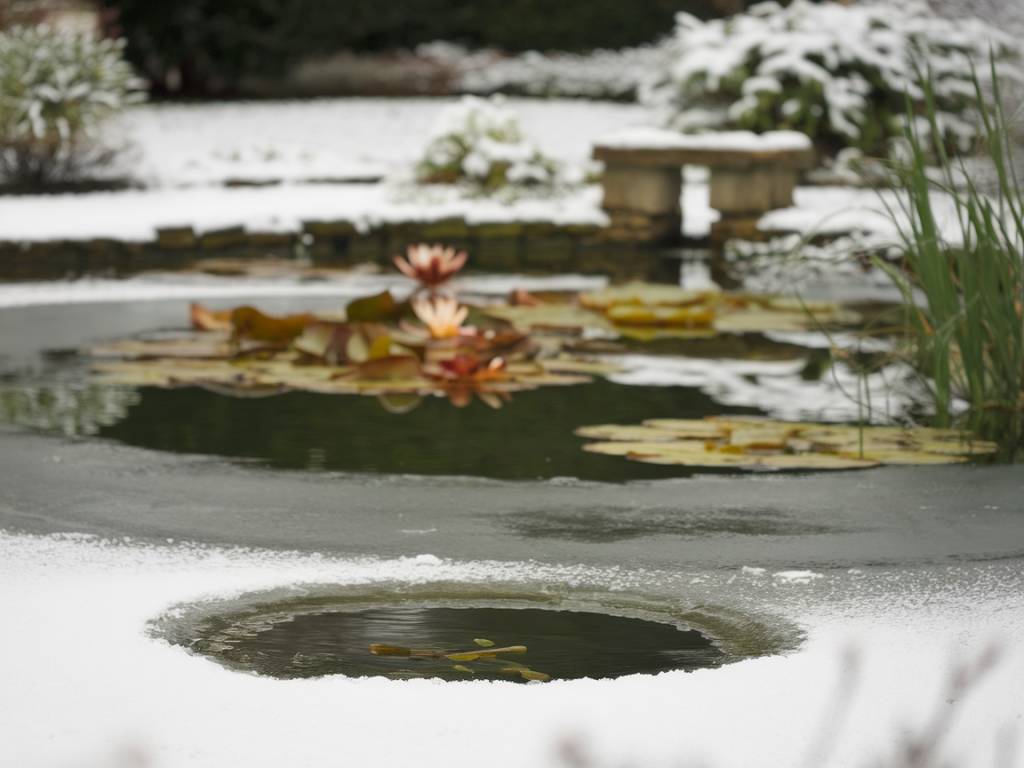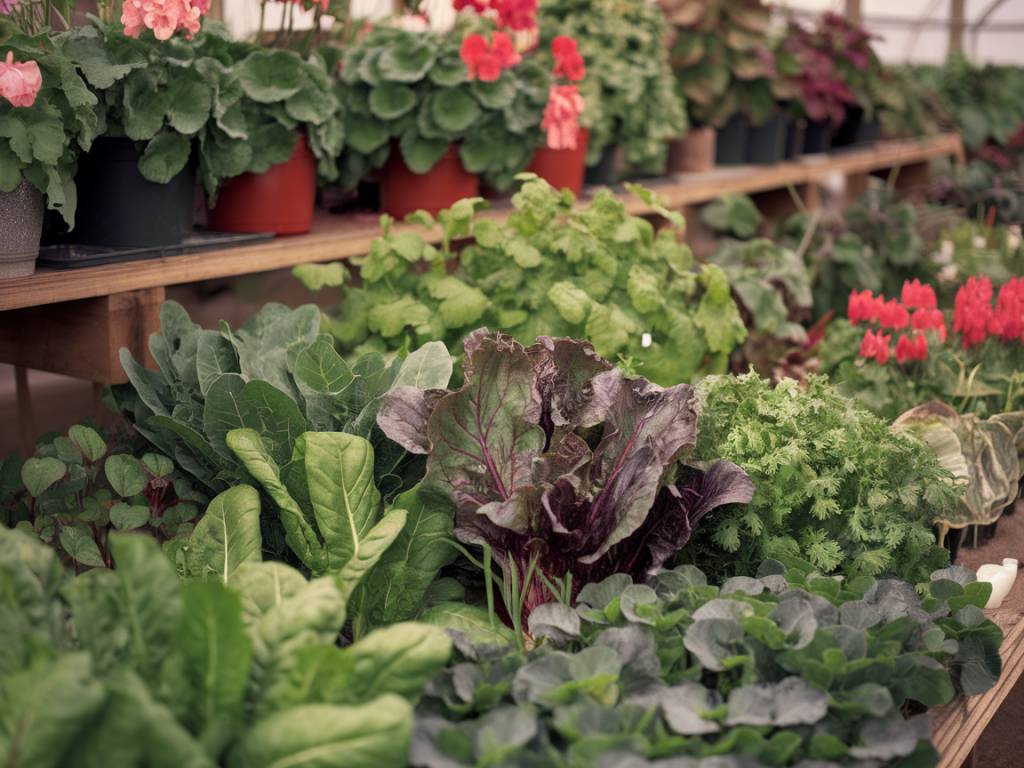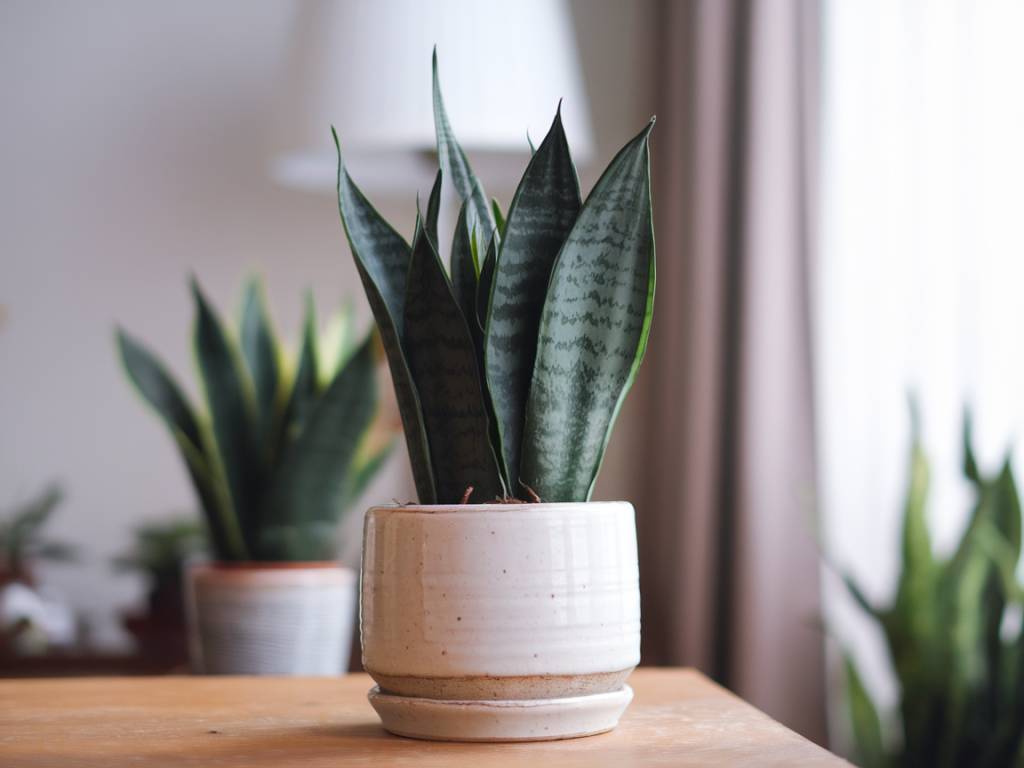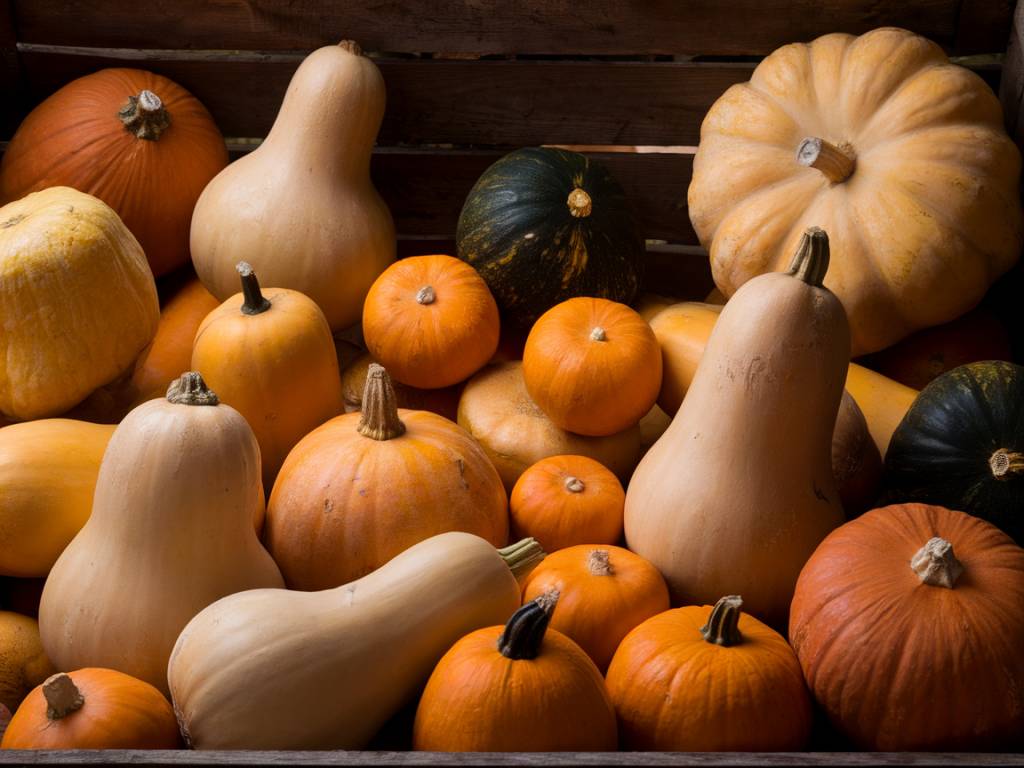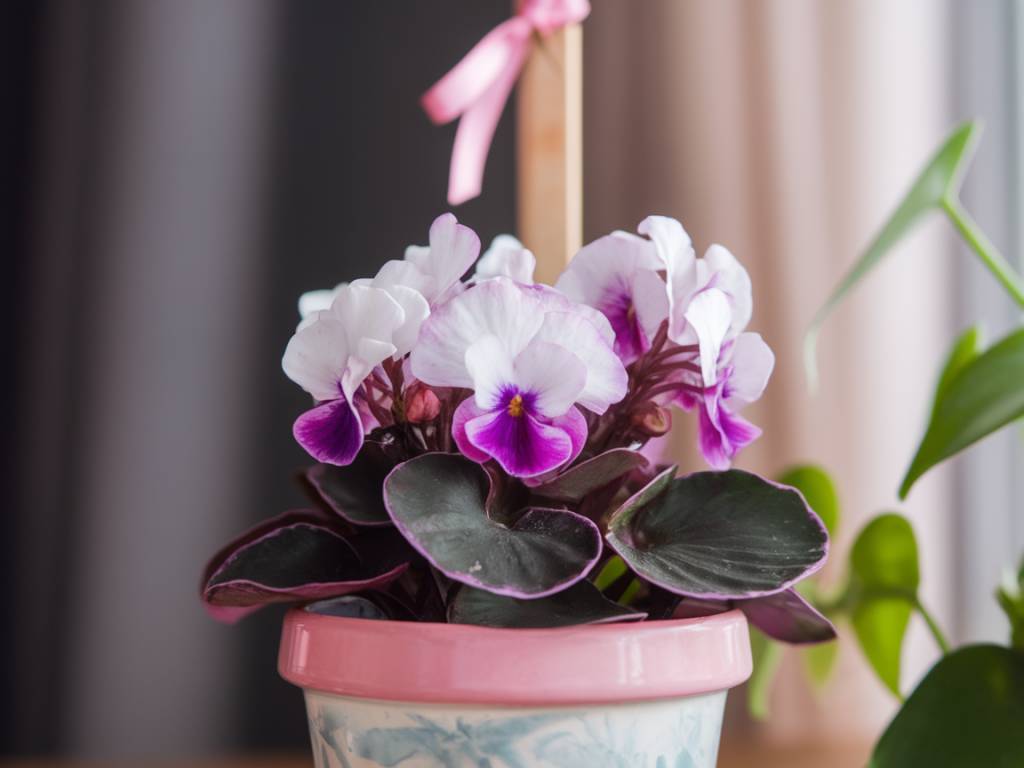As the cold months roll in, many gardeners tend to put their tools away and wait for spring. However, there’s no need to abandon your garden entirely. Winter gardening can be incredibly rewarding, and there are plenty of vegetables that actually thrive in the cold. In fact, some crops even develop better flavors when kissed by frost. So, let’s turn our attention to the winter garden and explore the hearty vegetables that you can grow even as temperatures drop.
The Joys of Winter Gardening
Winter gardening has its own unique charm. The garden may not be bursting with the vibrant colors of summer, but there’s a quiet beauty in the frosty, mist-laden mornings. Plus, the cooler weather can actually reduce the number of pests in your garden, meaning less stress over dealing with unwanted intruders. Winter gardening also offers the joy of harvesting fresh produce when fresh veggies are harder to come by in stores.
Basic Tips for Winter Gardening
Before diving into the list of cold-weather vegetables, here are some essential tips to keep in mind:
- Soil Preparation: Make sure your soil is well-drained and enriched with compost. Poorly drained soil can become waterlogged, which is detrimental to most plants.
- Mulching: A thick layer of mulch helps regulate soil temperature and retain moisture. It also reduces weed growth, making your gardening tasks a bit easier.
- Covering: Cloches, cold frames, or row covers can offer some added protection against extreme weather conditions, giving your plants a better fighting chance.
- Planting Times: Ensure you plant your crops well ahead of the first expected frost. This allows the vegetables to establish themselves before the cold really sets in.
Top Vegetables for Winter Gardening
Now that we’ve covered the basics, let’s get into the vegetables that are exceptionally suited for winter gardening.
Kale
Kale is a powerhouse when it comes to nutritional content and cold tolerance. This leafy green actually tastes sweeter after a frost, as the cold converts some of the plant’s starches into sugars. Plant kale about six to eight weeks before the first frost. Varieties like ‘Winterbor’ and ‘Red Russian’ are particularly hardy and perfect for the colder months.
Brussels Sprouts
Brussels sprouts are another vegetable that benefits from a touch of frost. These miniature cabbages develop a sweeter, more nuanced flavor in the cold. They do require a long growing season, so it’s best to plant them in late summer to ensure a plentiful winter harvest. Use sturdy staking to support the heavy stalks, particularly in windy conditions.
Carrots
Many people don’t realize that carrots can be a winter crop, but they actually do quite well in cooler temperatures. Carrots can remain in the ground even as the temperature drops, as long as they are well-mulched. Frost even enhances their sweetness. Varieties like ‘Nantes’ and ‘Chantenay’ are especially well-suited for winter harvesting.
Parsnips
Parsnips are often considered a winter delicacy. Like carrots, their flavor is improved by frost, making them sweeter and more enjoyable. Plant them in the late summer or early fall for a winter harvest. Parsnips can be stored in the ground and dug up as needed, making them an excellent addition to your winter garden.
Leeks
Leeks are exceptionally hardy and can withstand quite cold temperatures. They grow slowly, so they need to be planted several months before winter sets in. Once the cold arrives, leeks will continue to grow, albeit more slowly. Their mild, onion-like flavor is a wonderful addition to winter soups and stews.
Cabbage
Cabbage is another robust winter vegetable. Both red and green cabbage can tolerate cold weather exceptionally well. Varieties like ‘January King’ are specifically bred for winter growth. Cabbages require a bit of space but are relatively low-maintenance once established. Harvest heads as needed and keep any unpicked heads covered with mulch for added protection.
Winter Lettuce
Winter lettuce varieties, such as ‘Winter Density’ and ‘Arctic King,’ are specially bred to withstand the cold. These hardy greens can grow in temperatures that would decimate other lettuce types. They do well under cloches or in cold frames, making them a convenient choice for winter harvesting.
Spinach
Spinach is incredibly cold-hardy and can be grown well into winter with the proper care. Like many other leafy greens, it becomes sweeter after exposure to frost. Spinach grows quickly, so multiple planting cycles throughout the fall can ensure a continuous harvest. Use row covers or cold frames to extend the growing season even further.
Garlic
Garlic is typically planted in the autumn for a summer harvest, but its presence in the winter garden is vital. Once planted, garlic cloves set down roots and gradually grow over the winter. By the time spring arrives, your garlic will be well-established and ready to flourish. Plant varieties such as ‘Hardneck’ for winter resilience and robust flavor.
Broad Beans
Broad beans, or fava beans, are particularly well-suited for a winter garden. They’re planted in the fall and grow slowly throughout the winter. By early spring, they’ll be ready to provide a bounty of fresh beans. These sturdy legumes also help improve soil fertility by fixing nitrogen, making them a dual-purpose plant for your garden.
Peas
Winter peas are another excellent choice for cold-weather gardening. Varieties like ‘Douce Provence’ or ‘Meteor’ can handle frosty conditions and still produce a bountiful harvest. Peas can be direct-sown in late autumn or even in early winter, especially with the protection of a cloche or cold frame. Their tender shoots are also delicious and a great addition to salads and stir-fries.
Remember, winter gardening is not just about enduring the cold but embracing the unique challenges and rewards that come with it. By choosing the right vegetables and employing some essential gardening techniques, you’ll find that the winter garden can be surprisingly productive and satisfying.
Why let your garden go dormant when so many delicious, cold-hardy vegetables are waiting to be grown? With a bit of preparation and care, you can enjoy fresh, home-grown produce even in the depths of winter.
Happy gardening!
– Samanta

